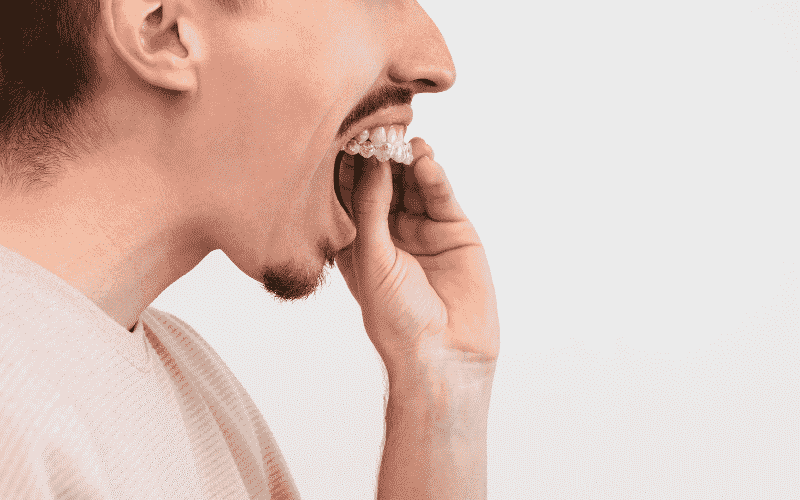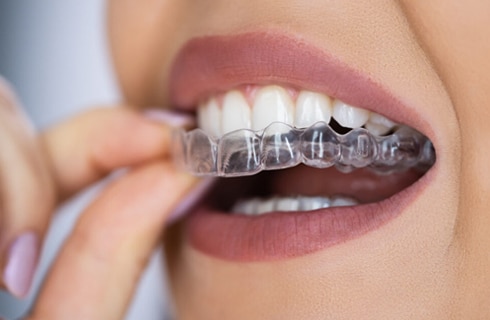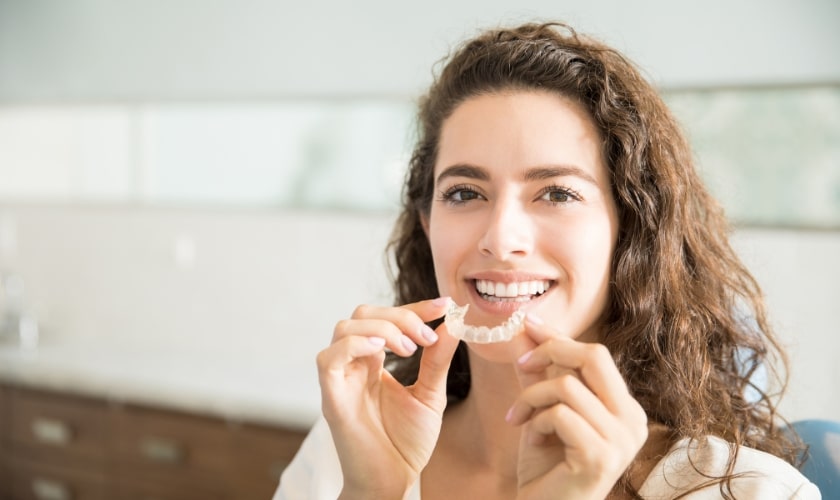ONLINE SCHEDULING AND VIRTUAL CONSULTS AVAILABLE

What to Eat and What Not to Eat During Invisalign Treatment?

If you’re considering invisalign treatment, you may be wondering what to eat and what not to eat. It’s important to follow your orthodontist’s instructions in order to get the best results from invisalign. This article will cover the foods that are safe and beneficial for invisalign treatment, as well as those that should be avoided.
What To Eat With Invisalign Treatment
When it comes to invisalign treatment, there are plenty of options when it comes to eating healthy meals or snacks. Here are some suggested food items that can help with invisalign treatments:
Fruits & Vegetables
Fruits and vegetables are packed with essential vitamins and minerals that can help invisalign treatment. Additionally, they are great sources of dietary fiber which can aid in digestion. Fruits like apples, oranges, and bananas make excellent snacks or meals when combined with other healthy items. Vegetables such as broccoli, spinach, carrots, and bell peppers can be eaten raw or cooked for added flavor and nutrition.
Lean Meats & Fish
Protein is an important part of invisalign treatment because it helps with muscle growth and repair. Lean meats such as chicken breast, turkey breast, lean beef cuts, fish like salmon or tuna are all good sources of protein that invisalign patients should consider incorporating into their diet.
Whole Grains
Whole grains are packed with important vitamins, minerals, and dietary fiber that can help invisalign treatment. Foods such as oatmeal, quinoa, brown rice, whole wheat bread, and barley can all be beneficial for invisalign patients.
What Not To Eat With Invisalign Treatment
In order to get the best results from invisalign treatment it’s important to avoid certain foods. Here are some food items invisalign patients should avoid or significantly limit consumption of during invisalign treatment:
Sugary Foods & Beverages
Sugary beverages like soda and juices as well as sugary snacks like candy and cookies should be avoided or limited during invisalign treatment. These foods can cause cavities, which can lead to further dental issues that invisalign cannot fix.
Sticky & Chewy Foods
Sticky and chewy foods such as gummy candies, caramel, taffy, and chewing gum are all bad for invisalign treatments because they can damage the invisalign trays. Additionally, these items can get stuck in the invisalign trays, making them difficult to clean properly.
Hard Foods & Drinks
Hard foods such as nuts and hard candies should be avoided with invisalign treatments. The invisalign trays can be damaged by hard foods and beverages, causing them to break or crack. Additionally, these items can cause soreness in the gums due to their hardness.
Conclusion:
Eating healthy is important for invisalign treatments as it can help with overall dental health. It’s best to follow your orthodontist’s instructions when it comes to what to eat and what not to eat during invisalign treatment. Fruits, vegetables, lean meats and fish, and whole grains are all beneficial for invisalign patients whereas sugary snacks, sticky/chewy foods, and hard foods should be avoided or limited during invisalign treatment.
Frequently Asked Questions
Answer: It’s best to avoid sugary snacks during invisalign treatment as these items can cause cavities, which can lead to further dental issues.
Answer: In addition to sugary snacks, invisalign patients should also avoid sticky/chewy foods and hard foods/drinks such as nuts and hard candy. These items can damage the invisalign trays or cause soreness in the gums.
Answer: Eating a diet that is rich in fruits, vegetables, lean meats, fish, and whole grains is best for invisalign patients as these foods are packed with essential vitamins and minerals that can help invisalign treatment. Additionally, they provide great sources of dietary fiber that can aid digestion.





